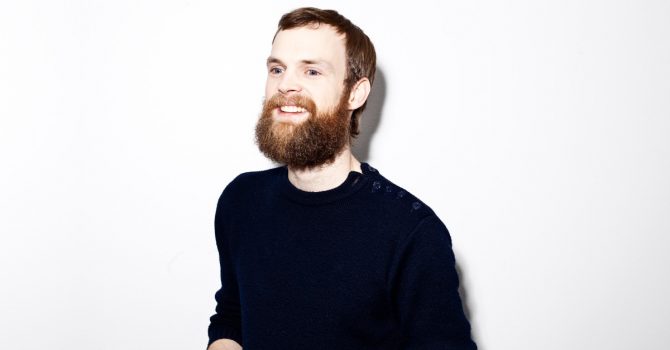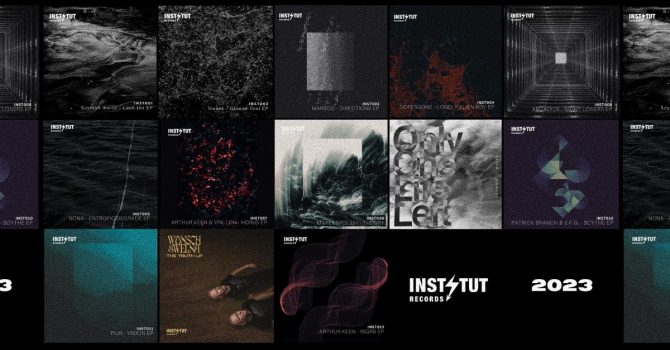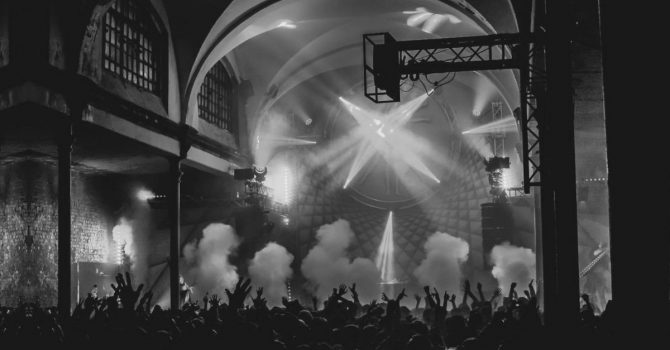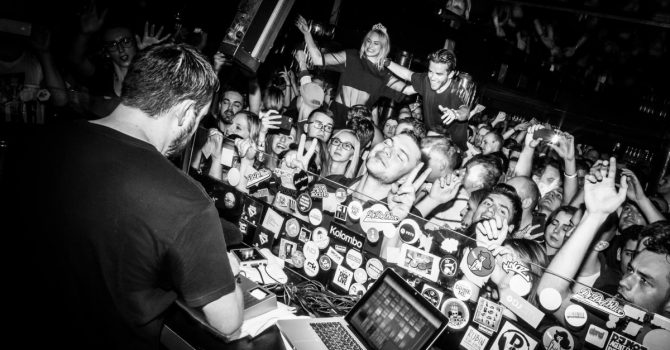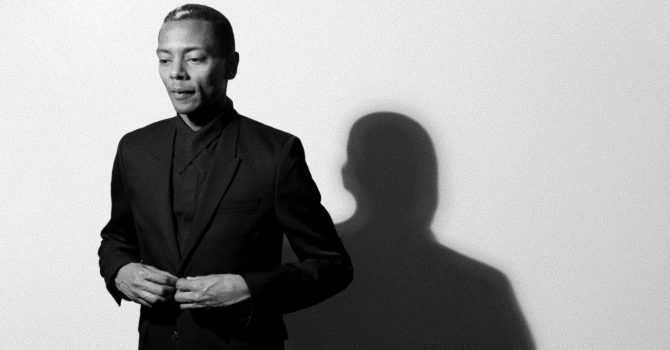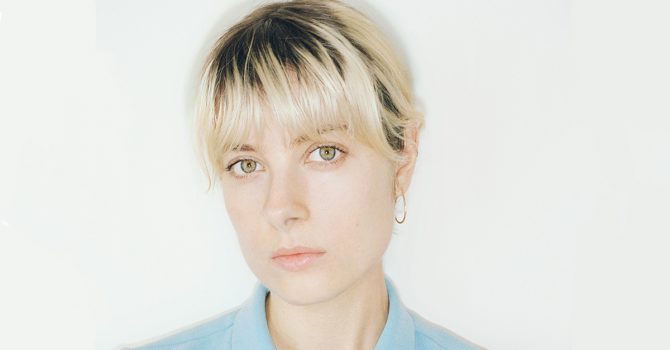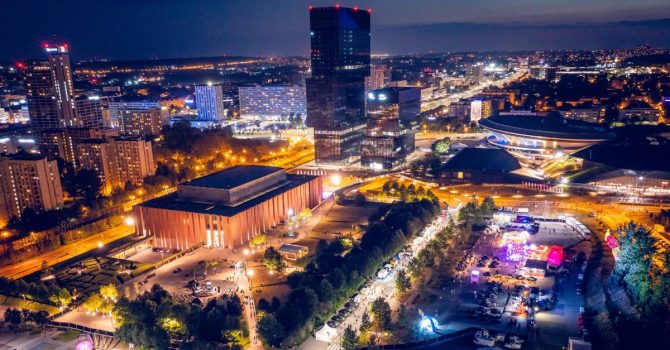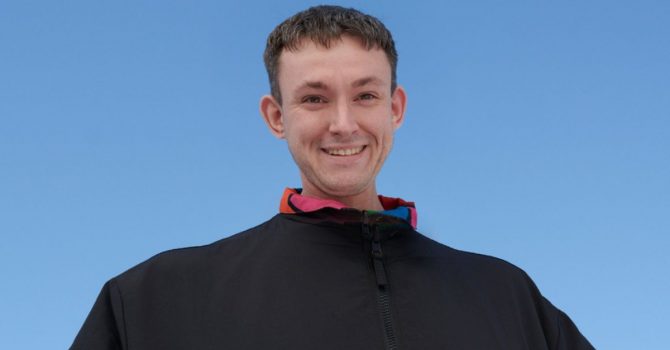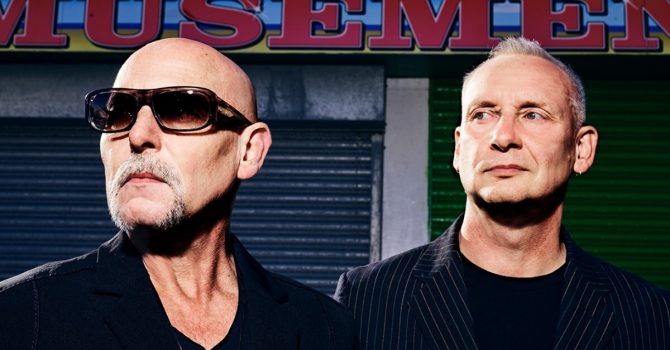Answer Code Request: „Berghain to miejsce, w którym czuję się jak w domu” [wywiad]
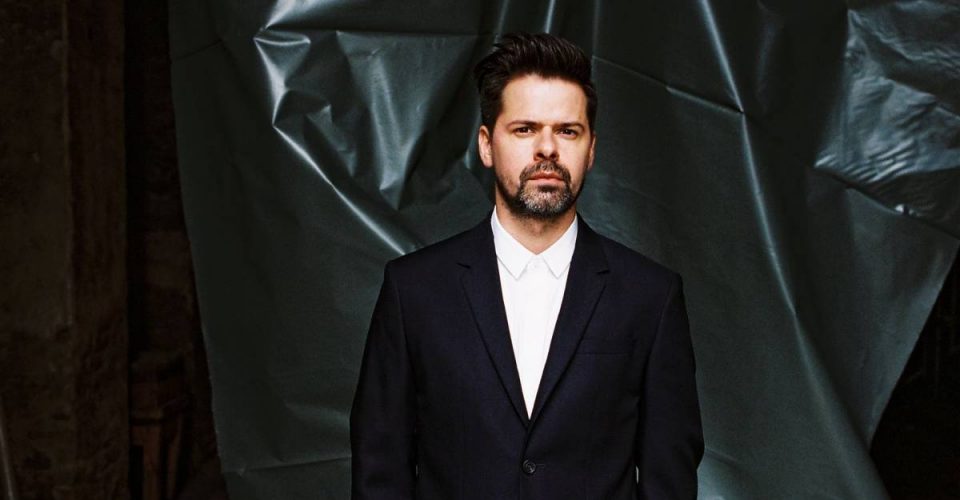
Na kilka dni przed rozpoczęciem Tauron Nowa Muzyka 2023 rozmawiamy z jednym z najważniejszych artystów tegorocznej edycji - Answer Code Request.
[English version available below | Wersja anglojęzyczna dostępna poniżej]
Zarówno jako DJ i producent Answer Code Request (Patrick Gräser) wypracował przez lata wybitne, hybrydowe podejście do muzyki, które wyróżnia go w świecie jednolitego techno 4/4. Patrick na przestrzeni lat stworzył cierpliwą, ale potężną dyskografię, która uosabia zhybrydyzowany charakter techno w XXI wieku. Dzięki nietuzinkowemu łączenia harmonii z industrialną paletą dźwięków został szybko zauważony przez włodarzy berlińskiej oficyny Ostgut Ton.
Czytaj także: Answer Code Request w tempie 160 bpm. Słuchamy albumu
Zadebiutował na słynnej platformie w 2012 roku, zostając chwilę później rezydentem renomowanego klubu na granicy między Kreuzberg i Friedrichshain. Od tamtego czasu pojawiał się w najlepszych techno labelach – MDR, Dolly Deluxe czy Monkeytown Records. Pozostając integralną częścią berlińskiej sceny i tamtejszym brzmieniom, dorzucając swoje breakowe inspiracje, stał się regularnym gościem najlepszych parkietów globu. W tym roku ACD ponownie odwiedzi nasz kraj, będąc jednym z headlinerów piątkowej odsłony Tauron Nowa Muzyka. Wizyta na jednym z najlepszych festiwali w naszym kraju stała sie przyczynkiem do zadania mu kilku pytań.
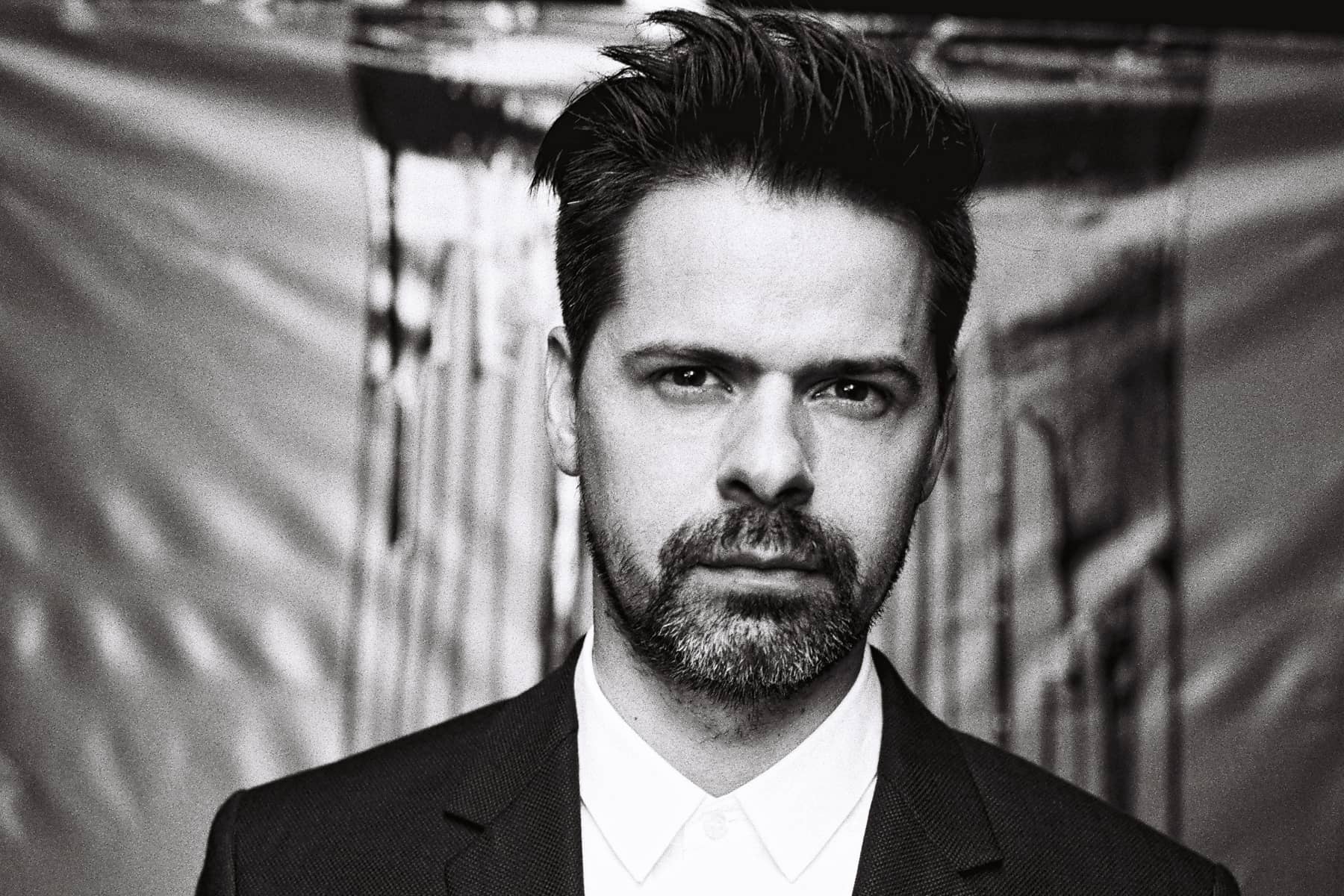
Answer Code Request – rozmowa
Paweł Chałupa: Na początku chciałbym zapytać Cię o Twój obecny stosunek do produkcji muzyki. W latach 2011-2018 regularnie dostarczałeś nowego, świeżego materiału. Twoje najnowsza EP-ka Shuttering z zeszłego roku pojawiła się dopiero 4 lata po wydaniu albumu Gens dla Ostgut Ton. Warto było zaczekać, to zdecydowanie jedno z najlepszych Twoich dokonań. Gdzie jednak upatrywać przyczyny Twojej mniejszej aktywności w studio?
Answer Code Request: Dzięki za ten feedback! W okresie pandemicznym nie byłem w stanie odnaleźć się w produkcyjnej rzeczywistości. Nie mogłem się w nią głębiej zanurzyć. Moje inspiracje, płynące głównie z wizyt w klubach i na festiwalach całkowicie przepadły. W czasie pandemii musiałem znaleźć sobie nowe zajęcie – przede wszystkim mam rodzinę i to ona ma pierwszeństwo. Był to czas kiedy przez dwa lata pracowałem na etat, skupiając się na życiu rodzinnym. Byliśmy bardzo ograniczeni przez pandemię. Przygnębiła mnie wówczas konieczność sprzedania nieco z mojego sprzętu. Teraz wszystko wygląda inaczej. Powrót do normalnego życia pozwolił mi pracować nad nowymi produkcjami. Wiele rzeczy jest w przygotowaniu, co bardzo mnie cieszy.
Answer Code Request – Shattering
W listopadzie, zaraz po rozpadzie Ostgut Agency przeszedłeś do agencji Little Big. Jak wspominasz współpracę z Ostgut i jak przyjąłeś informację o jego rozłamie? Nie raz wspominałeś, że ludzie tworzący agencje i klub traktujesz jak swoją rodzinę i profesjonalistów w każdym calu, dając Tobie jako artyście absolutną wolność w działaniu.
ACR: W Ostgut panowała bardzo harmonijna i ustrukturyzowana kultura pracy. W tym miejscu zawsze czułem się jak członek rodziny, regularnie odwiedzając biuro zlokalizowane w Berghain. Pozostawaliśmy w stałym kontakcie, to było dla nas bardzo ważne. Spotykaliśmy się wspólnie omawiając tematy dotyczące klubu, wytwórni, agencji, artystów czy bookerów. To generowało świeżą i pozytywną energię. Oczywiście szokiem była wiadomość, że wytwórnia została zamrożona już w 2021 roku, a rok później zamknięto agencję. To był burzliwy czas dla nas wszystkich. Zaistniała sytuacja przyniosła jednak nowe wyzwania i perspektywy, dając nam wszystkim możliwość sprawdzenia się na inny sposób. Dało mi to również poczucie, że zaczynam coś nowego i zamykam pewną epokę. Nic nie trwa wiecznie.
Pamiętasz jeszcze moment w którym zasiliłeś Ostgut i zostałeś rezydentem w Berghain? Kluczową postacią wydaje się być tutaj Marcel Dettmann.
ACR: Tak, doskonale to pamiętam. Zawsze przyjaźniłem się z Marcelem, dorastaliśmy w tym samym mieście. Szybko połączyła nas wspólna miłość do muzyki. Dałem mu swojego czasu kilka świeżych utworów, które ukazały się jako pierwsza EP-ka Answer Code Request. Powiedział, że przedstawi mnie Ostgutowi i pokaże mój nowy projekt agencji. Następnie miałem okazję zagrać w Berghain pod moim prawdziwym nazwiskiem Patrick Gräser, co zostało bardzo dobrze przyjęte przez włodarzy. Chwile później otrzymałem nobilitację pełnienia funkcji rezydenta w Berghain. Od tego momentu zasiliłem agencję Ostgut występując już jako Answer Code Request.
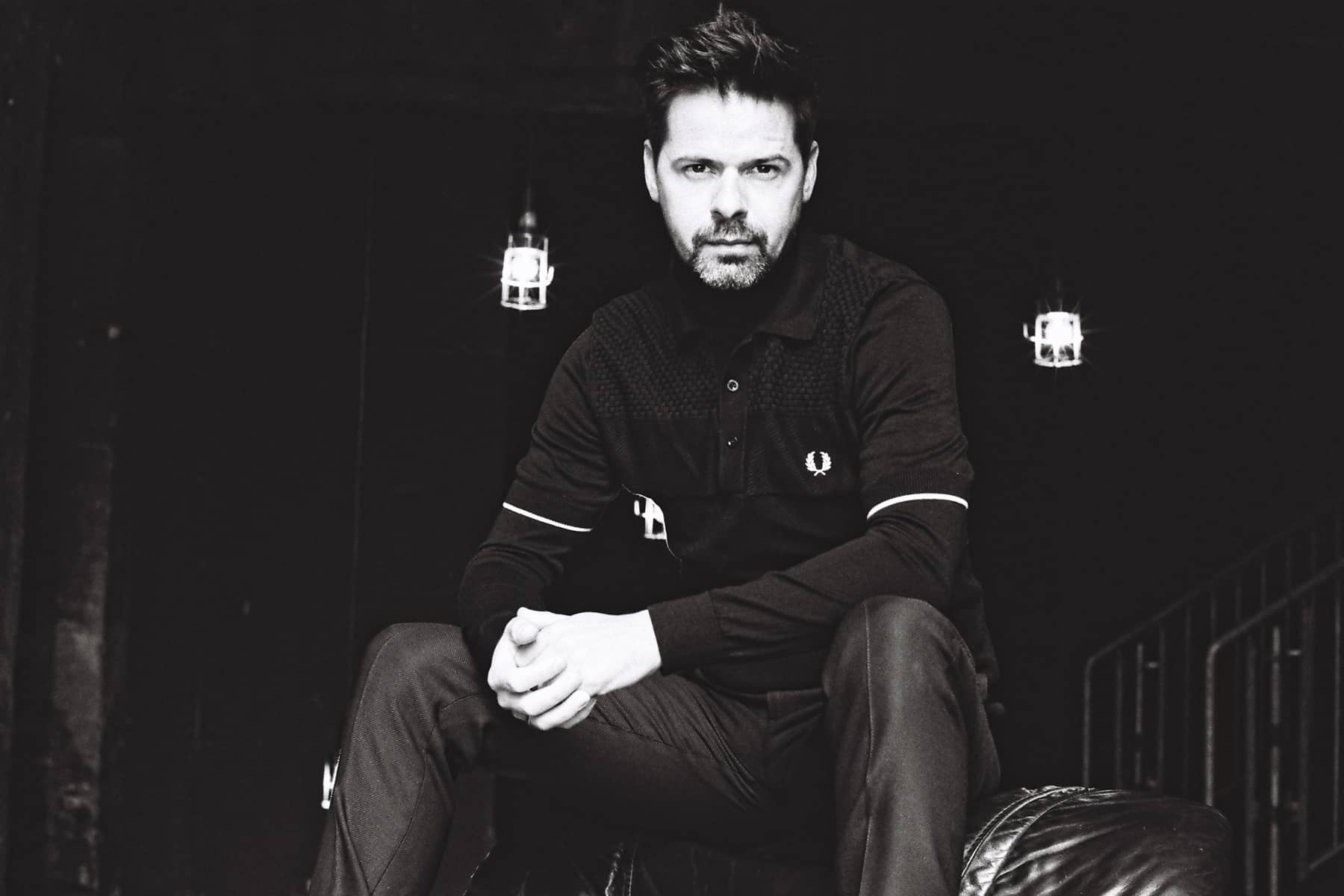
Jesteś jednym z wieloletnich rezydentów Berghain/Panorama Bar. Jak to miejsce ukształtowało Ciebie jako artystę? Czy to jest w Twojej optyce ten sam klub, z którym związałeś się kilkanaście lat temu? Mijają lata, pojawiają się nowe trendy, następuje zmiana pokoleniowa a Berghain wciąż uznaje się za najważniejszy techno klub na świecie.
ACR: W Ostgut zostałem bardzo ciepło przywitany. Co miesiąc odbywały się spotkania wytwórni, na których spotykali się wszyscy artyści i bookerzy. Wymienialiśmy między sobą opinie, przekazywaliśmy informacje zwrotne, dyskutowaliśmy nad rzeczami, które nam się podobają lub nie, rozmawialiśmy nad zmianami ulepszającymi działanie całego organizmu. Czas ten mocno mnie ukształtował, wiele się wtedy nauczyłem. Niestety wytwórnia czy agencja już nie istnieją. Jako rezydent nie gram już tam tak często jak wcześniej. Wiele zmian przyniosła pandemia. Jedno jest pewne – Berghain na zawsze będzie klubem w którym czuje się jak w domu.
Nie chce powiedzieć, że jesteś jednym z nielicznych artystów techno którzy wciąż są wierni „rdzennej” estetyce tego gatunku ale nie da się ukryć, że coraz więcej DJów i producentów z etykietą techno nie mają z nim wiele wspólnego. Jakie jest Twoje stanowisko przy coraz bardziej skomercjalizowanym techno i wkroczeniu tego brzmienia do mainstreamu?
ACR: Coraz trudniej trzymać się swojego stylu, ale dlaczego podążać za hypem? Ważne, aby pokazać ludziom, że istnieją inne gatunki muzyczne niż te „które są na czasie”. Przede wszystkim nowe pokolenie powinno być zachęcane do porzucenia całej twardej i szybkiej muzyki. Istotne, by spróbowali czegoś nowego, dzięki czemu staną się bardziej kreatywni. Klasyczne techno jeszcze wróci, jesteśmy w stałym cyklu. Dzięki nowym technologiom „stare” staje się czymś świeżym i nowym. Nadchodzące lata w tym kontekście będą mocno inspirujące.
Answer Code Request | HÖR
Jesteś jedną z najciekawszych postaci na scenie ze względu na brzmienie które prezentujesz w swoich produkcjach i setach. To wciąż niesamowicie jakościowa muzyka techniczna jednak o wiele dalej idąca niż samo techno. Sam jestem fanem Twoich rzeczy skręcających bardziej w IDM, ambient czy breaks. Skąd czerpiesz inspiracje do tak fantastycznego żonglowania brzmieniem? Mógłbyś wymienić postaci albo albumy, które zrobiły w ostatnim czasie na Tobie największe wrażenie?
ACR: Polemizowałbym ale przyjmuję to z wdzięcznością. W tej chwili trudno jest być zainspirowanym czymś nowym. Obecnie powróciłem do studia i próbuję rozpocząć pracę nad nowym albumem i kolejnymi EP-kami. Dużo innych rzeczy dzieje się w mojej wytwórni. Po prostu staram się być sobą. Unikam słuchania techno w ciągu tygodnia – wyjątkiem są przygotowania do weekendowych występów. Wciąż słucham wielu różnych rodzajów muzyki z zupełnie innego backgroundu.
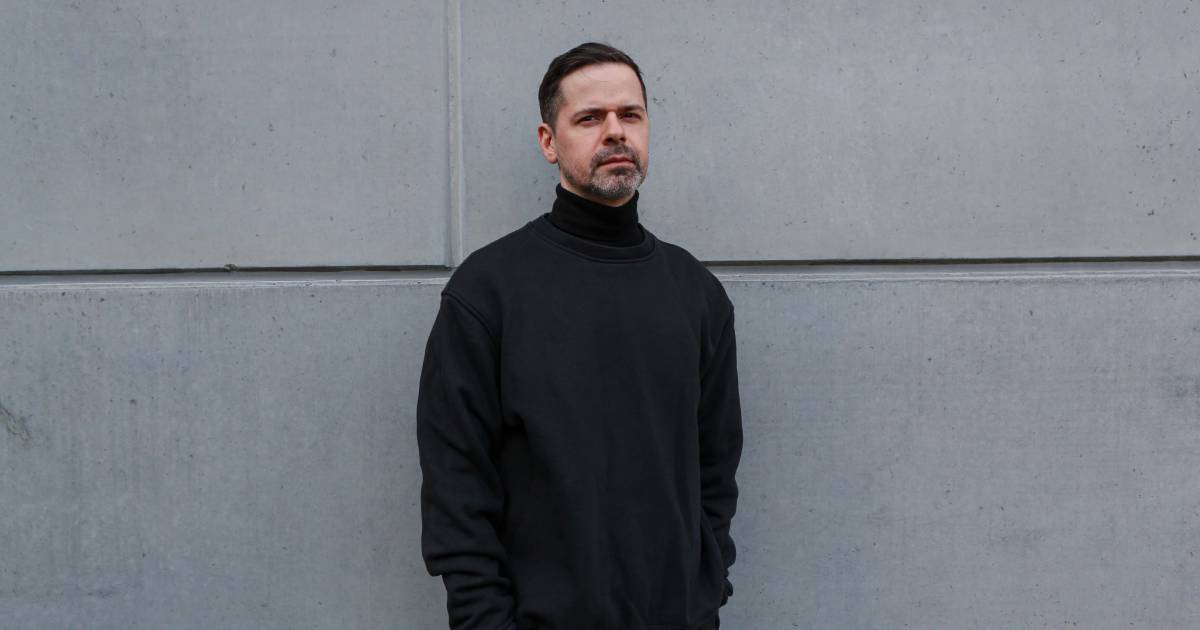
Chciałbym zapytać Cię o Twoją kooperację z Amotikiem. Za Wami kilka udanych sesji b2b, na horyzoncie kolejne, wspólne występy w Holandii i Belgii. Jak nawiązała się nić porozumienia między wami i skąd pomysł na takie własnie zestawienie?
ACR: Znamy się i darzymy wielkim szacunkiem jako DJ-e i producenci od dłuższego czasu. Naturalnie przeszliśmy na wyższy poziom znajomości. Zaczęliśmy pracować również w studio, kilka utworów udało nam się już ukończyć.
Niedawno wystąpiłeś w Polsce we wrocławskim klubie Ciało, za niedługo pojawisz się na Tauron Nowa Muzyka w Katowicach. Nie lubię pytań w stylu „jak podobają Ci się występy w danym kraju/miejscu” ale musze Cię zapytać o Twoich faworytów. Jest jakiś klub (oprócz Berghain), festiwal lub miasto, które szczególnie polecasz i wracasz tam zawsze z większą radością?
ACR: Jest wiele dobrych klubów i festiwali, na których chciałbym ponownie wystąpić. W tym momencie do głowy przychodzi mi wspaniały klub Vault na Bali. Uwielbiam tam grać. Kocham tamtejsze życie na wyspie i panującą wokół atmosferę.
Tauron Nowa Muzyka 2023 – ostatnia szansa na bilety
Bilety na tegoroczną edycję Tauron Nowa Muzyka otrzymacie za pośrednictwem naszych przyjaciół z Biletomat.pl. Trzy-dniowe karnety zostały właśnie wyprzedane. W sprzedaży wciąż pozostają karnety dwu-dniowe w cenie 409zł oraz bilety jednodniowe za kwotę 259zł.
Answer Code request – interview
Paweł Chałupa: Hi Patrick! First of all I would like to ask you about your current relationship with music production. Between 2011 and 2018, you regularly delivered fresh new material. Your latest EP Shuttering was released after 4 years since your last album Gens for Ostgut Ton. It was worth the wait, it is definitely one of your best achievements. Where do you think the reasons for your decreased activity in the studio come from?
Answer Code Request: Hello Pawel, first of all thanks for the nice feedback on my releases. Since the pandemic started, it was very difficult to start and immerse myself in production. My inspiration and weekend influences in clubs and festivals got lost. And I had to look for a job first, because I have a family and that takes priority. Back then, I had a full-time job for 2 years + normal family life. We were very limited by the pandemic. I also had to sell some equipment, which made me pretty depressed. Now everything looks different and I have my normal life back and can work more on production again, there is a lot in the pipeline which makes me very happy.
In November, right after the dissolution of Ostgut Agency, you moved to Little Big agency. How do you remember your collaboration with Ostgut, and how did you react to the news of its split? You have mentioned before that the people who create the agency and the club are like your family, and that they are professionals in every aspect, giving you as an artist absolute freedom to act.
ACR: It was a very harmonious and structured work culture with Ostgut, it always felt like a family and I was in the Berghain office quite often. Everything was connected with the club, whether label, agency or seeing the artists and bookers once a week, it was important for us to stay in touch. This always gave fresh and positive energy. Of course it was a shock for all of us when the news came out, with the fact that the label was already frozen in 2021 – and then the agency was closed a year later. It was a turbulent time for all of us, but it also gave us a new challenge for new perspectives and we were finally able to prove ourselves in a different way. This also gave me a feeling of moving something new and closing an era – Nothing is forever.
Do you still remember the moment when you joined Ostgut and became a resident at Berghain? Marcel Dettmann seems to be a key figure here.
ACR: Yes, I remember it well. I’ve always had a good friendship with Marcel and we grew up in the same city. That’s why we always had this connection that brought us together musically. I gave him a few new tracks back then, which came out as the first Answer Code Request EP. He said he would introduce me to Ostgut and show my new project to the agency. Thereafter, I had the chance to play in Berghain under my real name Patrick Gräser, which was then very well received by Ostgut and the agency. And then later i’ve got the residency in Berghain and artist at Ostgut as Answer Code Request.
You are one of the long-term residents at Berghain/Panorama Bar. How has this place shaped you as an artist? Is it the same club, which you joined over a decade ago, in your perspective? Years go by, new trends emerge, and there is a generational change, yet Berghain is still considered the most important techno club in the world.
ACR: When I came to Ostgut back then, I was given a very warm welcome. There were monthly label meetings where all the artists and bookers came together. You could exchange so much and also provide feedback on what you didn’t like so much or where you could change something. Be it for the club, label or agency. I found the time shaped me and I learned a lot. Unfortunately, the label or agency no longer exists. Something has changed, since as a resident you are no longer on site as much as before. The pandemic may have also contributed to this and a new generation has grown up. But for me, the Berghain club is still the club where you can say you feel at home.
I don’t want to say that you are one of the few techno artists who are still faithful to the spirit aesthetics of the genre, but it’s hard to deny that more and more DJs and producers with the techno label have little in common with it. What is your position on the increasingly commercialized techno and its entrance into the mainstream?
ACR: It’s definitely got harder to stay true to your line, but why follow the hype it’s important to show the people out there that there are other genres than just following the hype. Above all, the new generation should be encouraged to let go of the whole hard and fast sound and try something new and let people become more creative again. But it will all come back for sure, we are always in a constant cycle. The wheel is no longer reinvented. But with new technologies, old ones become something fresh and new. So I think the next few years will be very interesting and inspiring.
You are one of the most interesting figures on the scene due to the sound you present in your productions and sets. It is still incredibly high-quality technical music, but it goes far beyond just techno. I am a fan of your work that twists more towards IDM, ambient or breaks. Where do you draw inspiration from to create such fantastic sound juggling? Could you name any individuals or albums that have impressed you the most recently?
ACR: I don’t even know if I’m still one of the inspirational figures in the scene, but I accept that gratefully. At the moment it is rather difficult to be inspired, but now I’m back in the studio again and trying to start a new album and of course EPs, and a lot of new things are coming out on my label. I’m just trying to be myself. I hardly ever listen to techno during the week, only when I’m getting ready for the weekend gigs. Still listen to a lot of music in many areas.
I would like to ask you about your collaboration with Amotik. You have had a few successful b2b sessions, with more joint performances in the Netherlands and Belgium on the horizon. How did you establish a connection between yourselves, and where did the idea for this combination come from?
ACR: We’ve known and respect each other as DJs and producers for a long time, so it felt like a natural progression to take things to another level. We also started working together in the studio and have already finished some tracks.
Recently, you performed in Poland at the Ciało club in Wrocław, and you will soon be appearing at Tauron Nowa Muzyka in Katowice. I don’t like questions in the style of „how do you like performing in a given country/place,” but I have to ask you about your favorites. Is there a club (besides Berghain), festival, or city that you particularly recommend and always return to with greater joy?
ACR: There are a lot of good clubs and festivals that I would play again and again, but when I think about it, there’s a really great Club Vault in Bali now.. it’s just really fun to play there. And I love the island life there and the atmosphere.
Sprawdź także
Tauron Nowa Muzyka odkrywa ostatnie niewiadome – oto pełny program 18. edycji
![Answer Code Request: „Berghain to miejsce, w którym czuję się jak w domu” [wywiad]](https://muno.pl/wp-content/uploads/2023/03/tauron-copy-850x570.jpg)
Tauron Nowa Muzyka 2023 ogłasza headlinerów
![Answer Code Request: „Berghain to miejsce, w którym czuję się jak w domu” [wywiad]](https://muno.pl/wp-content/uploads/2023/02/Orbital-1-850x570.jpg)
Sprawdź także
![Answer Code Request: „Berghain to miejsce, w którym czuję się jak w domu” [wywiad]](https://muno.pl/wp-content/uploads/2023/03/tauron-copy-300x200.jpg)
Tauron Nowa Muzyka odkrywa ostatnie niewiadome – oto pełny program 18. edycji
![Answer Code Request: „Berghain to miejsce, w którym czuję się jak w domu” [wywiad]](https://muno.pl/wp-content/uploads/2023/02/Orbital-1-300x200.jpg)




